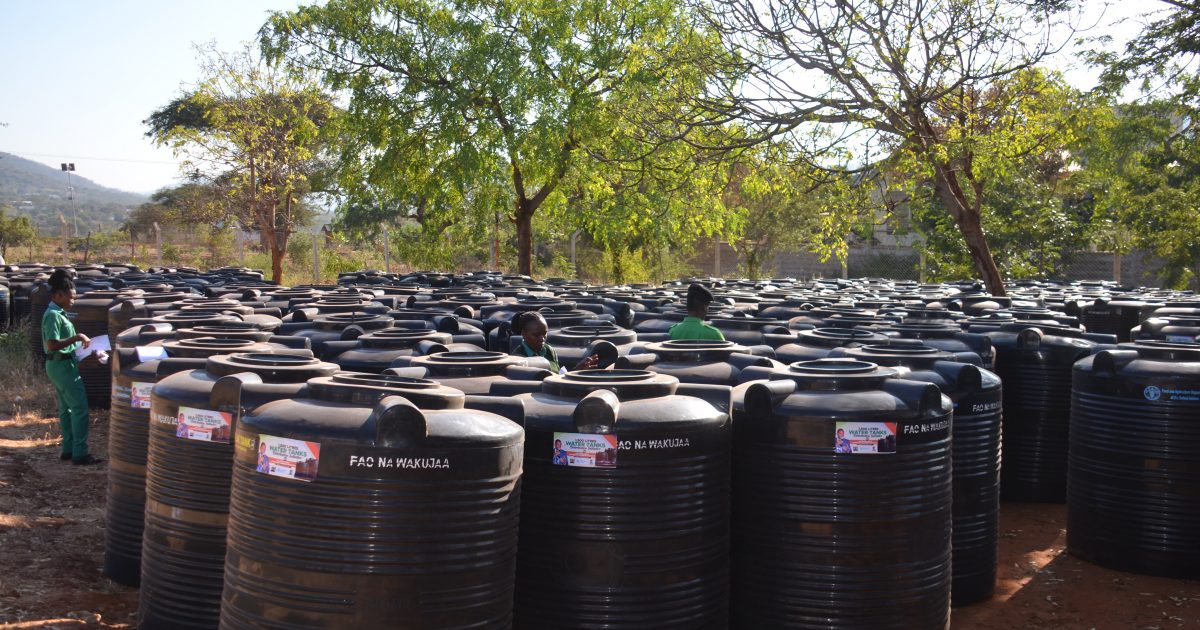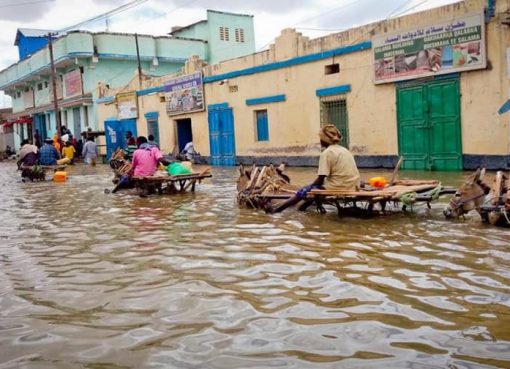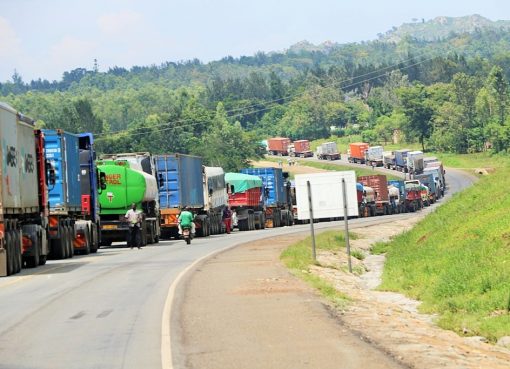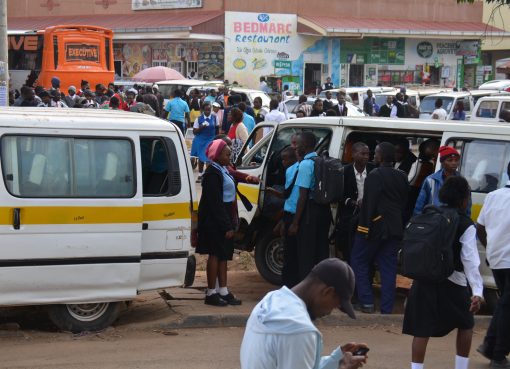A partnership between the Taita-Taveta County government and Food and Agricultural Organisation (FAO) has benefited over 400 artisanal farmers who have received plastic tanks for water storage as part of enhanced efforts to fight perennial water shortages at household levels in the region.
Governor Andrew Mwadime noted that with proper water-harvesting facilities, the region can enhance nutritional capacities at household levels through kitchen gardening.
Speaking on Tuesday at Mwatate during the distribution of 256 tanks to vulnerable farmers, the governor stated that low-income households that have been dogged by a lack of water for ages would be prioritized in the program that is geared towards making the county a water-secure region.
He hailed the partnership with development partners stating that it would extend to other sectors to empower the local residents. Such other sectors include investing in value addition in agriculture, livestock, fisheries, and mining.
“We are committed to improving access to safe and clean water for farmers and other low-income families. The tanks will harvest water during the rainy seasons and save many families from the long, torturous treks to water sources,” he explained.
Mr. Abedih Mbatha, FAO County Programme Specialist, said the entire programme would entail distributing 800 water tanks to vulnerable families in the arid region. Each tank has a capacity of 1500 litres.
He added that when all the targeted households received their tanks, the region would have an additional capacity to store 1.2 million litres of water. The stored water can then be used for various purposes, including domestic consumption and kitchen gardening.
Already, 147 tanks had been distributed earlier to selected farmers in Mwatate, Wundanyi, and Voi.
“Water scarcity can be addressed by enhancing the means and ability to harvest rainwater. This programme aims at increasing the availability of water at domestic levels for farmers and other people,” he said.
He further stated that FAO was supporting the county in the formulation of spatial plans and digitization of land records to improve efficiency and eliminate redundancies that affect service delivery. In Taveta, FAO is establishing an oil-press machine to boost value addition for sunflower farmers.

Mr. Eric Kyongo, the CECM agriculture director, said that the tanks would address some of the challenges posed by such factors that have disrupted water availability. He added that the rainwater can be harvested to alleviate some of the challenges even as the county works on other interventions.
He further stated that FAO has been pivotal in entrenching and developing strategies that would boost the farmers’ efforts and increase their farm yield. He noted that the organisation was involved in activities like the promotion of the sunflower value chain, rice farming, and increasing access to water through rehabilitating and drilling boreholes.
Mr. Kyongo disclosed that the county had partnered with Taita-Taveta University to create a laboratory that will exclusively deal with research on banana tissue culture for the generation of the best species to exploit the potential in the region.
He added that the county was spending a fortune buying and transporting seedlings from other laboratories. Yet, some of the species did not do too well because they were incompatible with the soil and climate.
“We want to exploit the potential we have by creating a laboratory that will give us the best species suited for the local soil and climate,” he said.
The event was attended by senior county officials, including County Executive Committee Members (CECMs) for Agriculture, Lands, and Youth. Wundanyi Deputy County Commissioner Maina Ngunyi was also present to represent the national government.
Taita-Taveta County, despite having water resources including springs and fresh-water lakes, has continued to suffer from water scarcity because of a lack of funds to lay the infrastructure for supplying water to households. The cost is prohibitive and provision of water tanks to harvest rainwater is a great stop-gap measure.
Wanton destruction of forests, degradation of water towers, and prolonged droughts have further conspired to adversely affect rivers and streams by reducing water volumes, rendering the situation dire.
By Wagema Mwangi





